
Do you have what you need to make your garden grow?


Garden Center
Store Hours
Mon-Sat:
6:00am - 9:00pm
Sun:
8:00am - 8:00pm
Curbside:
09:00am - 6:00pm
Location
Popular at Your Garden Center
Spring Garden Supplies
Explore Popular Spring Plants
Garden Project Calculators
;Resize=(703,395.44))
Grass Seed Calculator
When you're ready to seed your lawn, our calculator helps you estimate the amount of grass seed you'll need to get the job done.
;Resize=(703,395.44))
Mulch Calculator
Enter your preferred material, the square footage and mulch depth of the coverage space for accurate results.
;Resize=(703,395.44))
Fencing Calculator
We'll calculate the amount of fencing you should purchase based on your property needs.
Shop Outdoor and Garden Brands
Frequently Asked Questions About Gardening
Which planting zone am I in?
Check the USDA plant hardiness zone map, as planting zones have shifted over the years. Planting zones with higher numbers can plant earlier in the year. Increase your odds of successful gardening by choosing plants that are meant for your zone.
What does direct sowing mean?
If the ground isn't frozen solid and the soil isn't cold, consider planting your fruit, flower, or vegetable seeds directly into your garden. This is called the "direct sow" method. The time to plant will be after the threat of frost is gone for the season, as seedlings and sprouts can't weather those conditions. You can also start your seeds indoors if you'd like. Consult your seed package for when and how to sow seeds.
How do I plant seeds?
The best source of info is the seed packet your garden-to-be came in. It's key to successfully growing fruits, veggies, and spring flowers — indoors or outdoors. Requirements vary from one type of plant to the next. Some seeds should only be planted indoors, and your seed package will tell you that, too. You'll be a pro at planting seeds in no time.
Do I have to harden off my seedlings before planting them outside?
Yes, for best results, if you raised plants indoors from seeds in your own plant nursery, harden them first before you transplant them. Hardening is the process of getting them used to the great outdoors. It slows their growth until they're strong and ready to take off during a spring warm front. Hardening also makes your plants more resilient to a sudden cold snap. Read your seed packets or speak to a garden center associate for more information.
Can I strengthen my seedlings before planting them outdoors?
Get your sprouts used to storms and breezy spring days with a fan and keep fungus from growing in damp conditions. Set up an oscillating floor fan on low to mimic the wind. Just the gentlest breeze for several hours a day will do the trick. The stems and leaves will get used to blowing in the breeze and not snap when a gust comes through. If you don't set up a fan, your seedlings may be more sensitive to strong winds. Try to plant between storms.
Should I use peat moss starters or coir starters?
Seed starters, full of nutrients in pellets or pots, work for new and experienced gardeners alike. You don't have to use these starters if you're planting in soil, but you may want to. Starting seeds in peat pots works best for delicately rooted plants like carrots and beets, as well as flowers that require an acidic pH. Some people prefer coir starters instead, as they have a neutral pH. Check what type of soil your plants need to help narrow it down, and chat with a garden center associate if you need more info.
Garden Project Ideas
The Home Depot Garden Center at Wesley Chapel
Set Up For Springtime
On beautiful spring days, tidy the yard before everything blooms in earnest. Many people feel inspired to refresh their outdoor space for entertaining as well. Don't forget to clean the shed and sweep out the gazebo in preparation for spring, too. No matter which plants you need and what outdoor projects you choose to tackle, you'll find that The Home Depot Garden Center in Wesley Chapel is your local plant nursery to help you enjoy your spring activities to the fullest.
Plant Hardiness Zones Explained
The first thing to know when planting spring flowers, vegetables, and other seeds is your planting zone. Every location in the U.S. and its territories is sorted by climate. Find your zone on the USDA zone map and learn when to plant seeds.
For example, you could transplant bell peppers outdoors in mid-March in Zone 10, but not until the end of May in Zone 4. You'll have good results with plants that have your zone number or less. In other words, a Zone 8 garden can support plants listed as Zones 1–8. The timeframe to direct sow outdoors in your garden is often around a month later than the indoor start date. Always read your seed packet for details. If you start seeds later than recommended, it's not ideal, but it will likely even out as time passes.
Gardening in Your Growing Zone
The Mid-South is in Zones 7–9, with coastal regions being warmest and the zone number decreasing to an 8, then a 7 as you go up in elevation to the foothills of the Georgia mountains. Just check your planting zone, then consult the seed packet for the most accurate instructions for each plant. If you know you're in a micro-climate near a lake, mountain, or valley, zoom in on the USDA planting map for exact details down to street level.
In balmy Zone 9 on the coast, you can begin planning and planting indoors in January if you'd like. Zones 8 and 7 generally have a slightly later recommendation for indoor starts. Cruciferous veggies and garden favorites, like cucumbers, peppers, and tomatoes, all do well when started inside your home. Greens like spinach, artichokes, and fragrant herbs, including oregano, basil, and parsley, also don't mind an early beginning. You can sow flower seeds and watch them mature under the grow lights, too. Whatever you choose to grow, tend them carefully and transplant them when the threat of frost is gone for the season.
Plant Seeds Outside With Direct Sow
Planting seeds with the direct sow method, right into the soil, is another option. It doesn't give you as much organized planning in terms of reliability and spacing compared to indoor starts. However, if you like to go with the flow, follow the instructions on your seed pouch and try it out.
Your seeds might get washed away or struggle to grow, or rodents or bugs might eat the sprouts. But if you're really lucky, you might get a strong sprout from each place you sowed seeds, perfectly spaced and ready to grow all spring. The reality of your garden will usually be somewhere in between, and spreading out tiny sprouts throughout the soil isn't so bad. You know those sprouts are primed to survive, although there are no guarantees.
Start Seeds Indoors
If you'd like more control over your seedlings' journey or you're eager to get growing, start your seeds indoors in your own plant nursery. In general, you can plant seeds indoors about a month before you can do it outside. Like direct sow, you push the seeds into the soil as directed on the seed packet, but that's where the similarities end.
You're responsible for giving them quality substitutes for rain and sun. Keep your seeds cozy with heat mats and grow lights, water them carefully with a spray bottle or watering can, then thin them as they germinate in groups of three. Give them a boost with a gently blowing fan as they lengthen into sprouts if you'd like. Harden them off to get them used to outdoor conditions, then transplant them into your garden when they're big enough.
Transplant Young Plants Into Their New Homes
Place your transplants in the ground, then give them a generous drink of water. Blanket the surrounding ground with mulch, marking where the plant is with a tag or stick so you can easily find it among the grass clippings, old leaves, or straw. Consider putting up chicken wire or other protective measures if rabbits, squirrels, deer, or chipmunks visit your yard regularly, as your sprouts may otherwise become a snack.
Protect Your Garden With Mulch
Finish your garden bed with compost and mulch. Mulch keeps your soil from drying out and controls weeds. Compost enriches the soil so your garden can grow even better. It may help foster stronger and larger plants that bear more fruit and flowers. Compost and mulch can be purchased in-store or created at home. The next time you're looking for "mulch near me," stop by the Garden Center to get the right amount.
Greet the Spring
Don't miss a minute of growing season. Plan your garden and landscaping, prepare to fertilize your lawn, and browse The Home Depot nursery to find inspiration on which spring flowers to plant when the weather warms. For those without lawns, consider adding an outdoor rug, artificial grass, or a pellet grill to your balcony or patio. Shop for the fertilizer, seeds, and soil you need in the aisles of your Wesley Chapel Garden Center, online, or on our mobile app. Let's get growing together.
Nearby Stores
Find Another Store
65 Fairview Road
Ellenwood, GA 30294
6.84 mi
Mon-Sat: 6:00am - 10:00pm
Sun: 8:00am - 8:00pm
2295 Lawrenceville Hwy
Decatur, GA 30033
8.51 mi
Mon-Sat: 6:00am - 10:00pm
Sun: 8:00am - 8:00pm
4121 Hwy 78
Lilburn, GA 30047
10.82 mi
Mon-Sat: 6:00am - 10:00pm
Sun: 8:00am - 8:00pm
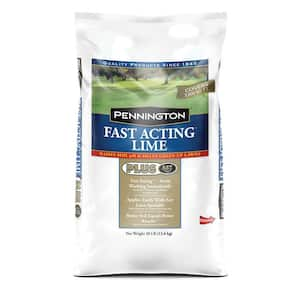
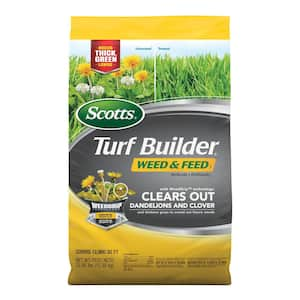
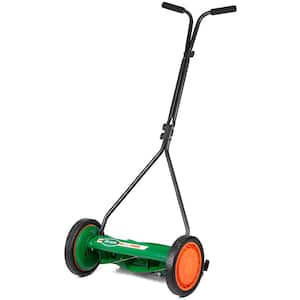
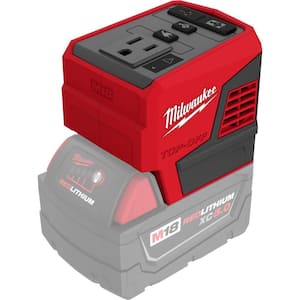

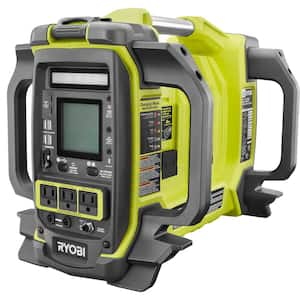
)
)
;Resize=(300,300))
)
)
/2023_P2_Rain_Barrels_Product%20Image%20(square).jpg?im=Resize=(300,300))
)
;Resize=(300,300))
)
;Resize=(300,300))
;Resize=(300,300))
;Resize=(300,300))
)
;Resize=(300,300))
/12_SOIL_B_0420_Social%20media%20(square).jpg?im=Resize=(300,300))
;Resize=(300,300))
;Resize=(300,300))
)
)
)
;Resize=(300,300))
;Resize=(300,300))
;Resize=(300,300))
;Resize=(300,300))
;Resize=(300,300))
)
;Resize=(300,300))
/18Patio_Camden_Seagrass_5pcSeating_Planters_302468736_DTL3_L_Social%20media%20(square).jpg?im=Resize=(300,300))
;Resize=(300,300))
;Resize=(300,300))
;Resize=(300,300))
;Resize=(300,300))
;Resize=(300,300))
)
)
)
.jpeg?im=Crop,rect=(363.69230769230774,1.2307692307692308,958.7692307692308,958.7692307692308);Resize=(300,300))
;Resize=(300,300))
;Resize=(300,300))
;Resize=(300,300))
)
)
;Resize=(300,300))
;Resize=(300,300))
;Resize=(300,300))
)
;Resize=(300,300))
)
)
)
)
;Resize=(300,300))
;Resize=(300,300))
)
;Resize=(300,300))
)
)
/Capello_Spring_Mum_10in_Social%20media%20(square).jpg?im=Resize=(300,300))
;Resize=(300,300))
)
)
;Resize=(300,300))
;Resize=(300,300))
)
)
)
)
)
;Resize=(300,300))
;Resize=(300,300))
;Resize=(300,300))











































